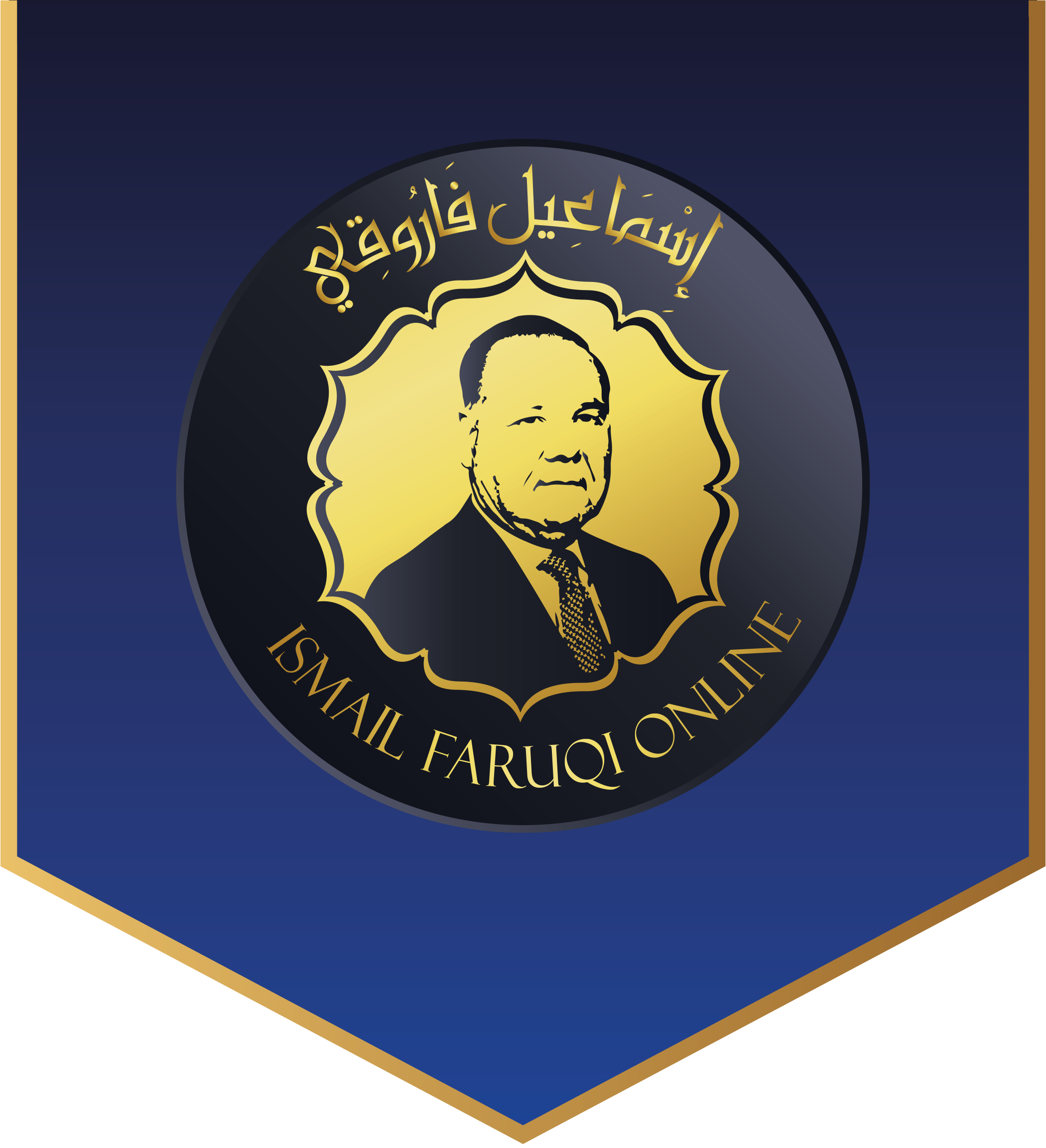Islam in the Modern National State by Erwin I. J. Rosenthal.
Cambridge: The University Press, 1965. pp. 416. $10.50
Review by Isma’il Raji al-Faruqi
The problem of the relationship of Islam to the national state and the confrontation of its Law with modernity have been the subject of much controversy. Many books have appeared which seek to define the problems and evaluate tha solutions possible or proposed. This work is perhaps one of the most comprehensive. It surveys classical political thought in Islam as well as its gradual dislodgement from the centers of Muslim political power; it analyzes constitutional theories, contemporary reforms and the role of education in a number of Muslim states. The amount of information Dr. Rosenthal collected is quite impressive; and, where it is purely repetitive, the book undoubtedly takes its place among the best in the field.
The book jacket announces that the author “writes always as a detached observer. He does not apply the categories of the West to what is essentially Muslim dilemma and problems.” This notwithstanding, it asserts “There has been no counterpart in Islam of the Reformation in the West and so [sic!], in the absence of radical reform, a vulnerable religious and political system has capitulated stop by step to a secular nationalism.” In Chapter I, entitled “The Hum Situation”, where the author analyzes the nature of the problem, he writes: “From Descartes on, philosophy and science in the West have been based on a new attitude toward God and the Universe…Nor must we forget the…principle of freedom of conscience which was first established in the realm of religion by Luther and his Reformation. This new spirit…produced the political philosophy of Hobbes and Locke, which in turn..triggered off the French Revolution…directed equally against political and ecclesiastical tyranny. There evolved a new concept of state and nation which…can easily be reconciled with deism, but not so easily with the God of revelation, the creator and ruler of the wilverse. Hence [sic!] Muslims must either choose between the sovereignty of God and the sovereignty of the people…” (p. 6). It is nothing short of amazing how — even when he expressly plans and commits himself to be objective, whén try as he may — the Western Islamicist is incapable of putting his own cultural predilections and prejudices in enoche. That Islam did not have “the Reformation”, “Descartes”, “Locke”, “Luther” and “the French Revolution” is neither a critique, nor a description, nor an understanding of Islam but a shallow piece of Westernism. One does not understand America by saying of it that it did not have a Genghis Khan!
As Rosenthal sees it, the gravamen of men’s dissatisfaction with Islam in modern times is the outdatedness of its law, the shari’ah. He rejects the reforms of modernists as superficial, “operat[ing] within very narrow, closely defined limits” (p. 49) because they “set out to restore the pure, original Islam purged from alien accretions” and “leave basic principles and substantive law untouched” (p. 48). (One wonders whether Dr. Rosenthal is aware that the Reformation, his pet reform model, has not touched the Nicene Creed!) What than should an Islamic reform do? the reader asks. Rosenthal lays down the rule that since Islam is “a political and religious unity [it] cannot…merge “with Western civilization as it is today, since to the latter, the separation of state añd Church is basic.” (Apparently, for Dr. Rosenthal, 1) Islam’s reform has no meaning other than merging with Western Civilization; and 2) Islam cannot be said to have reformed unless it has initiated — indeed, has has become — Christianity!) Twisting the famous phrase of Namiq Kamal, Rosenthal claims “that the shari’ah can only be suspended but not amended.” (Ibid.). For him this follows deductively from the absolute principle, “very religion based on a law is faced with the danger — and the reality at one stage or another — of stagnation or petrification…” (p. 48-49). Obviously, that is not at all the case with the shari’ah which built within it the institutions of ijtihad (creative interpretation), ijma’ (consensus), al maslih al mursalah (public good for which there is no legislation), al istihsan (diversion from the rule for good reason) and taghyir al ahkam (change of provisions of the law when their sufficient reason no longer obtains), and recognized them as ever new sources of law-making. Certainly, the Muslims may be blamed for not availing themselves of these institutions for keeping the shari’ah abreast with human development, but not the shari’ah itself, nor the ancestors who crystallized it in such open-ended manner.
A number of other shortcomings in the book stand out. Some are linguistic, when we read sultata ruhiya wa zamaniya instead of sultatani (p. 109); khalasa instead of khulasa or khilasah (p. 176); etc. Others affect the understanding of Islam and are more serious. He asserts that “zakat is a religious command enjoined upon Muslim believers whereas jizya is imposed by the state…” (p. 108) Both are religious and imposed by the Qur’an. Dr. Rosenthal asserts that “conversion by force, both within and without the boundaries of Islamic national states, is ruled out”, thanks to “the United Nations Charter and the Bill of Human Rights” (p. 109). But which Muslim today claims to convert men by force? and who has ever declared conversion by force to be a principle of Islamic mission? Is Dr. Rosenthal not aware that the Qur’an teaches “No coercion in religion. For truth is now manifest and is clearly distinguishable from error…It is the truth from your Lord; wherefore let him who will, believe; and let him who will, disbelieve (2:256; 18:29); that in observance of this principle the Muslims had done as well or better than any humans in history. He calls Khalid Muhammad Khalid’s socialism “Western” (p. 113), unaware of the real thrust of his thought in some twenty or more volumes of which Dr. Rosenthal mentions only one.
The author shows little sensitivity to what the Muslim Modernist everywhere is trying to do. He is too admiring of the summary solution of Mustafa Kamal in Turkey, viz., suspension of the shari’ah (Chapter 3); and he pours the vials of strong criticism on the Muslims of Pakistan for venturing on a separate road from their ethnic brethren in India (Chapters 6 and 8). As for the Arab World, Dr. Rosenthal’s survey does not go beyond Jamal al Din al Afghani (died 1898) on one side, and 1952 on the other. While Islamic reform goes back to Ibn Taymiyyah (died 1328), the importance of the 1952 Revolution in Egypt for the whole subject of the book is immense. Dr. Rosenthal chose to ignore it completely as well as all the literature — mountainous by any standards — which it inspired or produced. He discusses “the Place of Islam in National Education” (Chapters 14, 15), but he ignores the most important of all events in the field, the 1960 reform of Al Azhar, the one international institution which supplies the whole Muslim world with the most of its religious leaders.
Isma’il Raji al-Faruqi
Syracuse University

